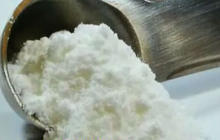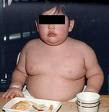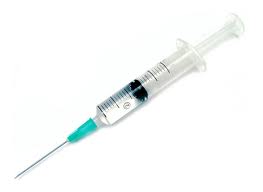Given that my previous blogs about caffeine (including dangers of energy drinks, how caffeine affects your sleep, and how caffeine may affect the blood sugars of diabetics) have been quite popular based on number of hits, I felt it important to blog about the ENORMOUS DANGERS (yes I am shouting!) of powdered caffeine.
It seems that a number of distributors have popped up, who are selling pure powdered caffeine in bulk bags over the internet. They are usually marketed as a dietary supplement, and are unfortunately unregulated. Teens and young adults are particularly drawn to powdered caffeine, which is apparently being used as an energy booster, as a ‘boost’ before workouts, or to control weight gain in people struggling with overweight or obesity.
To be clear, we are not talking about powdered coffee here – we are talking about straight up chemical caffeine. Caffeine is the stimulant that is found in coffee and tea.
Powdered caffeine is incredibly dangerous – according to the FDA, just one teaspoon is roughly equivalent to about 25 cups of coffee. The FDA is aware of at least two deaths caused by these products.
To put the amount of caffeine into perspective:
- one cup of standard coffee has about 200mg of caffeine (though this can vary from 80-300mg)
- so one teaspoon of pure caffeine would have about (200 x 25) = 5000 mg of caffeine
- the Journal of the American Medical Association (JAMA) has published recommendations, stating that adults should have no more than 500 mg of caffeine per day, and adolescents no more than 100 mg of caffeine per day (details here)
- a potentially lethal dose of caffeine (according to JAMA) is as little as 3 grams (3000 mg) of caffeine – far less than a teaspoon of this deadly ‘supplement’.
So clearly, pure caffeine is highly potent, and very little is exceptionally dangerous. (Note that the numbers above are NOT exact, and NOT intended for any kind of dosage calculation for anyone considering use of powdered caffeine – the point I am making here is that powdered caffeine is extremely potent and thus extremely dangerous, and must be entirely avoided.)
Symptoms of excess caffeine ingestion include increased heart rate, palpitations, increased blood pressure, and insomnia, to name a few. Caffeine overdose can cause dangerously erratic heart beat, seizures, and death.
The FDA is doing its best to crack down on the sale of pure caffeine, and doing its best to educate people on its incredibly dangerous nature. So here’s my bit to educate as well – stay away from powdered caffeine.












